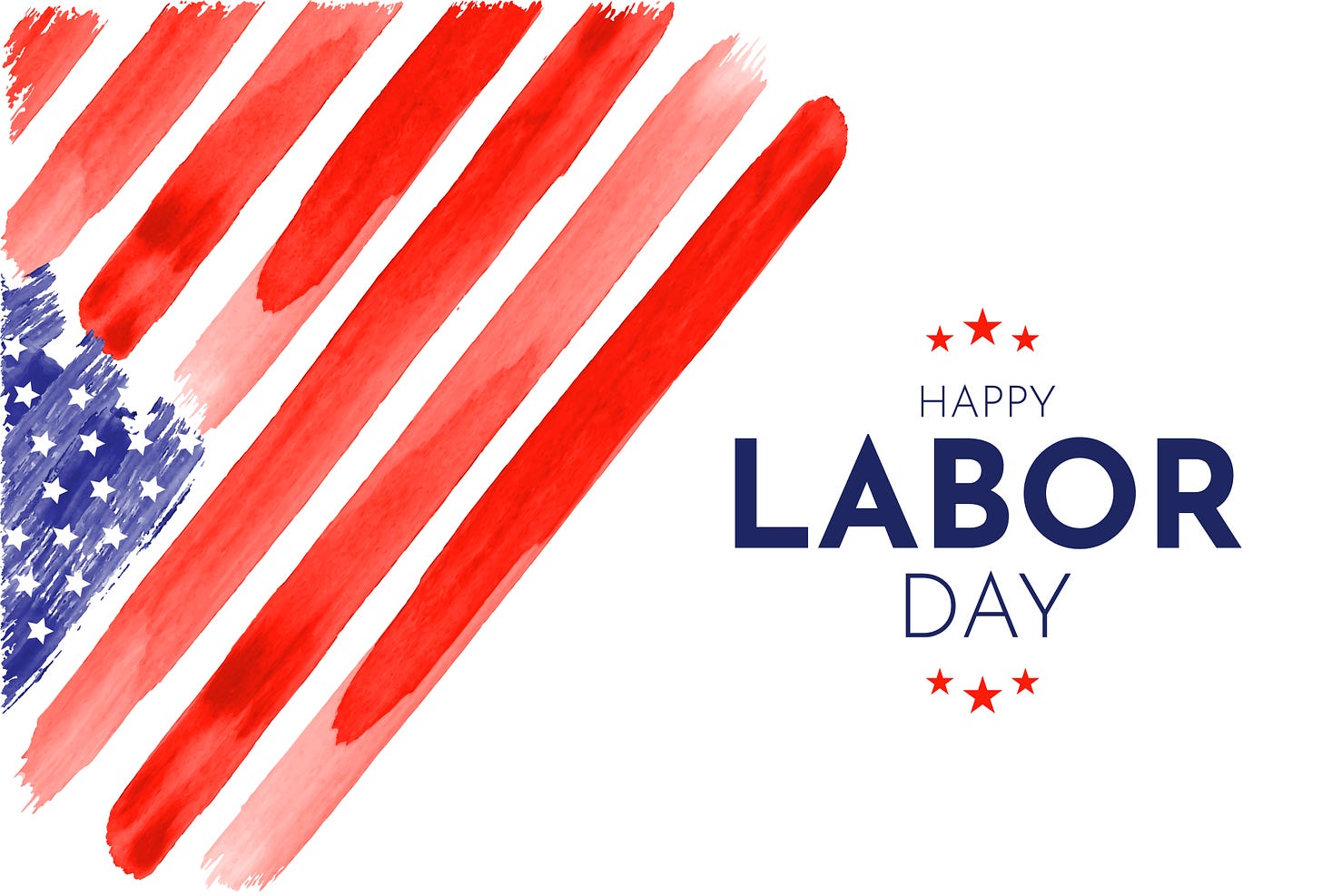The Nobility of Labor
We should not let the holiday pass without honoring the reason for its existence.
On this Labor Day, there is much in the news that burdens the mind, but we should not let the holiday pass without honoring the reason for its existence.
Labor is defined as “work, especially hard, physical work.” It is an inextricable part of human existence. In societies with divisions of wealth and privilege, there are often chasms between who toils and who benefits from that toil.
That has been a tragic truth of much of the American story. In its most violent and grotesque form, there was slavery and the subjugation and extermination of Native peoples. Even those who have been paid for their work have often suffered greatly at the hands of those who own and control the means of production, distribution, and profit.
We talk about stakeholders, but who is a greater stakeholder in a business’s success than those actually performing the work?
In recent years, there has been a sort of rejuvenation of the labor movement, and labor unions in particular, after decades of decline. This decline took place not because labor unions had failed, but rather because they had succeeded to help make America a prosperous and more equitable nation. In a new world, and a new economy, labor unions, like all of us, have to adapt. And there are encouraging signs that they are doing so.
There is so much to say about what labor is, what it does, and its importance to our country. It is central to what keeps us steady. All jobs bring honor and nobility, even work that is socially discounted or demeaned.
Take the job of cleaning spittoons. Granted, it’s not widespread these days, but there was a time when it was (spittoons were still in fairly general use, especially in courthouses and other public buildings, when I was breaking in as a reporter in the early 1950s). It’s difficult to imagine a task lower on the social order. It is not surprising that it was often the purview of Black men who faced heavy discrimination and limited job prospects even decades after the official end of slavery.
Labor in America can never be extricated from the story of racism and bigotry.
And yet, work is work. It is a source of needed funds for the rest of life and can also be a source of pride.
With this in mind, I can think of few more beautiful and nuanced tributes to the complexity of labor than the great American poet Langston Hughes’ poem “Brass Spittoons.”
I share it today for our communal reflection.
Happy Labor Day.
Brass Spittoons
By Langston Hughes
Clean the spittoons, boy.
Detroit,
Chicago,
Atlantic City,
Palm Beach.
Clean the spittoons.
The steam in hotel kitchens,
And the smoke in hotel lobbies,
And the slime in hotel spittoons:
Part of my life.
Hey, boy!
A nickel,
A dime,
A dollar,
Two dollars a day.
Hey, boy!
A nickel,
A dime,
A dollar,
Two dollars
Buy shoes for the baby.
House rent to pay.
Gin on Saturday,
Church on Sunday.
My God!
Babies and gin and church
And women and Sunday
All mixed with dimes and
Dollars and clean spittoons
And house rent to pay.
Hey, boy!
A bright bowl of brass is beautiful to the Lord.
Bright polished brass like the cymbals
Of King David’s dancers,
Like the wine cups of Solomon.
Hey, boy!
A clean spittoon on the altar of the Lord.
A clean bright spittoon all newly polished—
At least I can offer that.
Com’mere, boy!




Between this Labor Day and next (3/4/2023) we will commemorate the 100th anniversary of Frances Perkins becoming FDR’s United States Secretary of Labor and the first female member ever of the United States Cabinet.
Langston Hughes’s poem does wallow in the male dominant practice/work/world experience!! We should remember (even while spittoon culture lasted a bit too long) women were working hard to better the lives of all Americans. Frances Perkins in particular is how I choose to remember and celebrate Labor Day for her fight to bring the Social Security Act life, AND her tireless, driving efforts to establish the 40-hour work week, the implementation of a minimum wage, unemployment compensation, worker’s compensation, and the abolition of child labor!
Always worth remembering the foundations of the day - the Pullman Strike https://www.britannica.com/event/Pullman-Strike
All labor is worthwhile. All people are worthwhile. Not just the rich, not just the politically connected. A lesson we always need to remember.